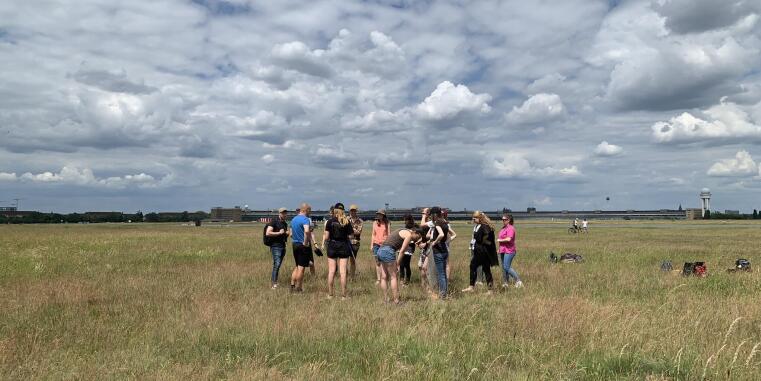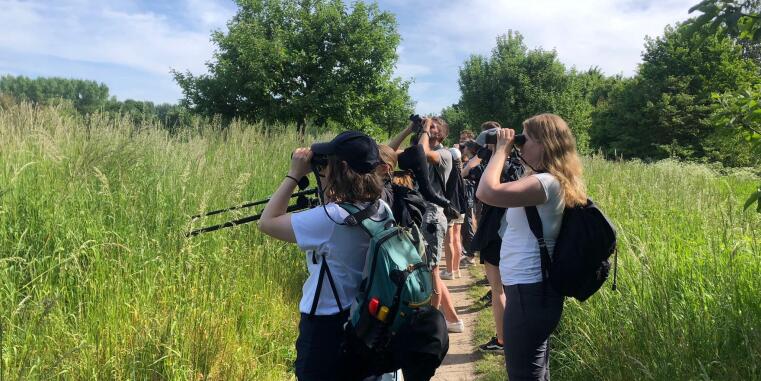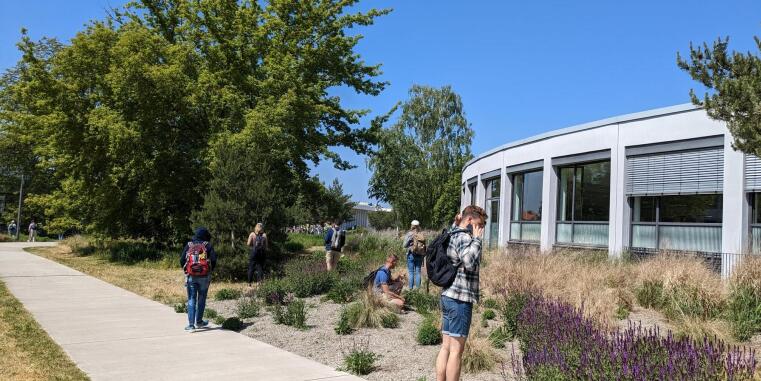







Many formerly semi-natural areas can no longer be restored to their original state due to their current or former utilisation as settlements, especially in densely populated areas. CIBRA is therefore dedicated to the development of urban and rural structures that promote biodiversity and may even serve as refuges for habitats in the normal landscape that have been destroyed by intensive agriculture.
Research is also focussing on the potential for wilderness through ecological novelty, such as succession landscapes on urban industrial and abandoned sites, and the effects of neobiota. At the same time, our integrative approaches involve as many people as possible in projects in order to awaken a sense of personal responsibility for biodiversity-promoting measures in the living environment, for example gardens, and to strengthen the connection to nature.